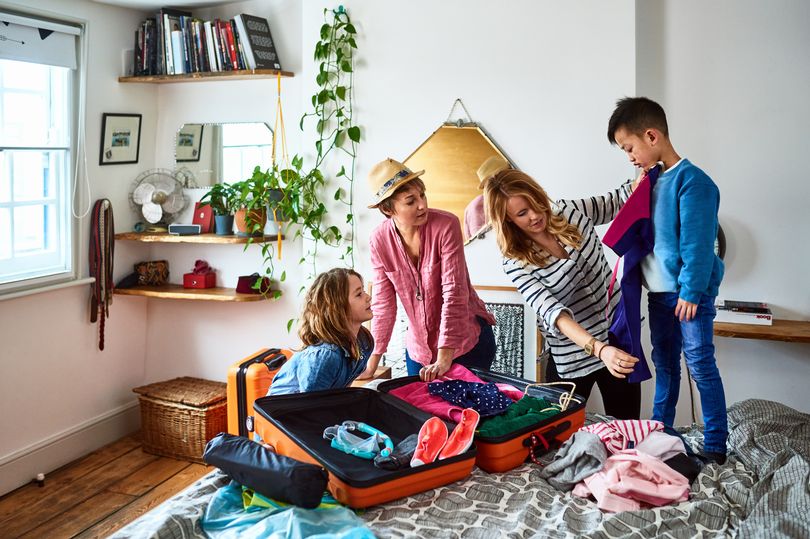
FOUR THINGS YOU MUST DO BEFORE YOU GO ON HOLIDAY TO SAVE MONEY ON BILLS
The summer has officially started and many will be heading on holiday over the next few weeks.
However, before you jet off on your jollies you should always take a minute to check if you're accidentally wasting money. Energy bills are at their lowest since 2022 - however, they are still much more expensive than they once were.
So while you're away, you don't want to be hiking your energy bills without realising it. For example, if you leave a television on standby you will be using energy, even though you are not there. Joanna Flowers, a service and repair engineer with British Gas, says: “With so much to think of, it’s easy to overlook the things you could be doing to save energy and keep your home safe, while you’re away and having fun.
"But by making a few small adjustments, you can help to reduce energy usage and save on bills while you’re relaxing on the beach.” Here are just a few things you should check before leaving your home for your holiday.
Put appliances on standby
There’s a convenience to standby mode, devices turn on quicker and stay up to date in the background, so they’re ready to go when you are. However, according to the Energy Saving Trust, the average household spends £40 in Britain and £70 in Northern Ireland each year, powering appliances left on standby.
Joanna said: "Leaving household appliances, such as microwaves, plugged in and switched on when not in use will still use up energy and cost you – and the same goes for leaving your TV on standby." If you are going away and not set to be using your appliances or devices, you should take a moment to check if they can be switched off. This could include, TVs, radios, speakers, or Freeview boxes.
Defrost the freezer
Most of us try and empty the fridge before we go away, leaving only the odd ketchup bottle or block of Cheddar behind to prevent food from going off while we are gone. Joanna added: "People often do this to prevent food waste, but it’s also a good way to be more energy efficient. If you’re going away for a long period of time, it’s worth defrosting your fridge and freezer to avoid using unneeded energy, or emptying them and powering down completely.”
However, don't feel you have to turn it off, particularly if your trip is short and you are keeping medicines or there are still food products in there. According to the consumer group Which?, under the latest Ofgem price cap the annual cost of running a fridge freezer sits at £60, with the cheapest model sitting around £47. This means if you are away for a week, you will not save costs by switching it off. However, if you are going away for more than a month, you may want to consider it.
With your freezer, ice build-up means it has to work harder to regulate the temperature inside, particularly if it gathers around the fan, so if you are away it may be an idea to defrost it to make sure it is working as efficiently as possible whilst you are gone.
Turn lights off
We all try and make sure all the lights are switched off when we go away. Under the new price cap, electricity costs 22p per kWh. This means a standard 40W lightbulb will cost around 12p if it is running continuously for 13.5 hours a day according to calculations from Sus-it. It sits at around 4p a day when running for 4.5 hours.
An energy saving lightbulb of 8W will cost around 1p a day when running for 4.5 hours. Although this doesn't sound too much, it can rock up particularly if you are away for two weeks. So it's always best to make sure all the lights are switched off. However, some people like to use timers to periodically light their homes and deter burglars. This is fine if you are happy to have them on, Joanna says there are plenty of smart lights and apps out there you can use.
Don't leave things plugged in
Plug sockets do not produce energy if they are not switched on, and empty sockets do not produce electricity because you need a full-completed circuit to get the energy flow. So turning off empty sockets doesn’t really do anything. However, if you leave something plugged in and switched on it will cost you.
According to the Energy Saving Trust, any switched on charger that is plugged in will still use electricity, regardless of whether the device is attached or not. The amount of electricity produced from this only costs a few pence, but it will shorten the shelf life of the charger. So its best to unplug your chargers when you go away.
2024-07-27T06:03:00Z dg43tfdfdgfd